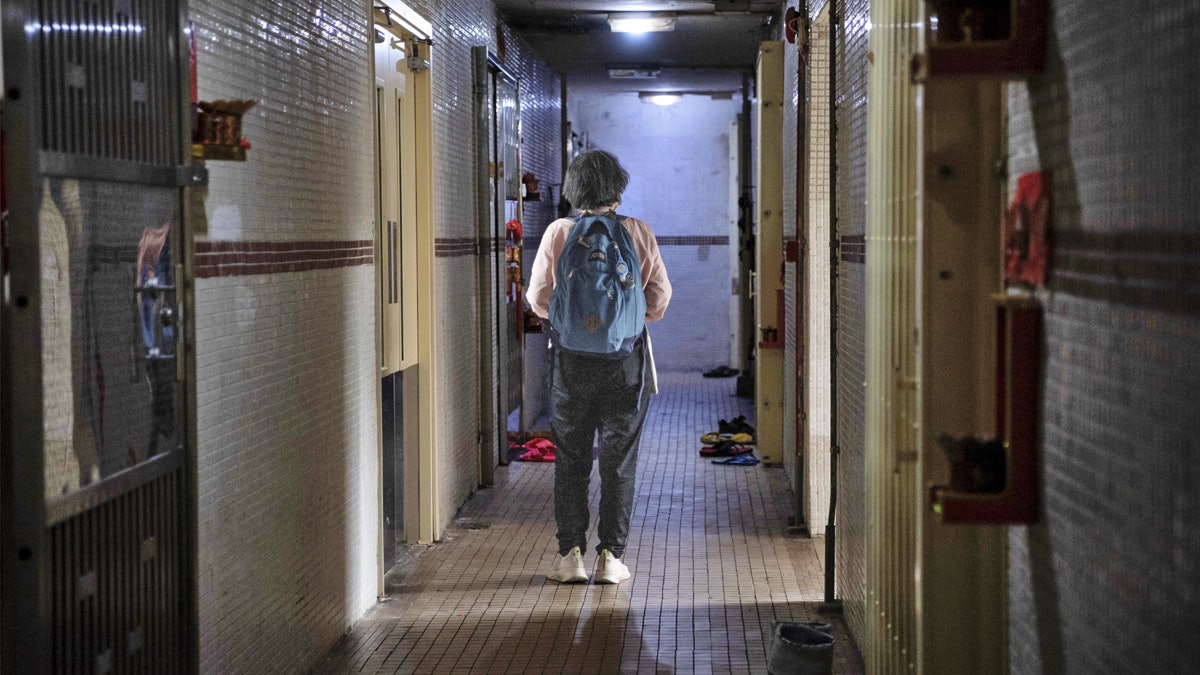In recent years, there have been unfortunate incidents in Hong Kong from time to time due to long-term care, the year before last, an electrician could not bear to have his wife with terminal lung cancer who died alone in the hospital, burned charcoal to kill his wife with his consent, and kissed the deceased's forehead before leaving the house to say goodbye. The sad song of caregivers reflects the inadequacy of Hong Kong's late care system, and with the rapidly increasing elderly population and the large number of critically ill patients, how easy is it to do a good life?
In the face of death, why "good death"?
Mother-in-law Tang (pseudonym), 65, is a family member of a double-old family, and her husband has been acting as a caregiver for three years after suffering from lung cancer, and her depression has worsened due to physical and mental stress, and she needs to see a doctor regularly for food and medicine. From her husband's diagnosis of cancer in 2019 to his death in 2021, Granny Tang has been accompanying her, taking care of her husband's living and eating and accompanying nursing until the moment of death. Granny Tang said frankly that the most important thing is that people die comfortably: "Even if you talk about people Chinese you have to die well, that is, go comfortably, better than go in bed, and get sores."
If the end-of-life care system is perfected, Grandma Tang also hopes to arrange her own end-of-life care plan and advance medical instructions to reduce the burden on her children.
Granny Tang's husband suffered severe discomfort during chemotherapy, which made his temper even more irritable, and both of them suffered. Granny Tang asked the doctor whether immunotherapy could be used to alleviate the discomfort of chemotherapy, but at that time, immunotherapy needed to be paid for at her own expense, and the Care Fund had not yet been implemented into the project.
Before his death, the husband was admitted to the hospital for a deteriorating condition, and signed the "Default Medical Instruction" with his own consciousness, choosing not to make invasive rescue when his life was in danger. Granny Tang believes that in order to achieve "good life and good death", in addition to receiving appropriate medical treatment and palliative treatment at the time of death, the medical instructions that patients can give themselves before dying can also help patients and caregivers to complete their life journey.
How to do good life and good difference in late care?
Public awareness of late-stage care is not deep
Leung Man-fu, President of the Hong Kong Gerontological Society and Honorary Consultant of the Geriatric Department of Hong Kong Sanatorium & Hospital, believes that the public generally does not have a deep understanding of the end-of-life care system, so the elderly or patients with serious illnesses often do not make independent arrangements when facing death, and the late-stage care system is still in the development stage in Hong Kong, and caregivers do not know where to start taking care, resulting in both patients and caregivers being physically and mentally exhausted and psychologically burdened when dealing with end-of-life arrangements.
There are two main categories in the end-of-care system, including Default Care Plan (ACP) and Default Medical Instruction (AD). Dr Leung said that palliative care in the end-of-care system is more widely known among the public, and at present, palliative care teams in various specialties in public hospitals are mainly provided to deal with various cases of advanced chronic diseases, and the services are fragmented. Coupled with the fact that the public hospital currently has only a few palliative care beds, which is simply not enough to cope with the more than 5,<> deaths in Hong Kong every year, he pointed out that Hong Kong needs to speed up the pace of improving the end-of-life care system.
"Tacit medical instruction" legislation
In Granny Tang's case, she hopes that in addition to palliative care while her husband is alive, she also hopes to receive more support for caregivers or services for patients away from home.
According to the social enterprise "Never Forget Love" to provide death-at-home services, Chairman Dr Fanning pointed out that to promote home comfort, legislation is needed to promote "default medical directives" to bring public attention to the end-of-care system and protect the industry. Fanning added that "hospital-housing-hospital" is a tired ecology, and to improve this problem, we must first solve the problem of lack of communication between medical communities before we can start to develop the end-of-care system.
According to Dr. Fanning, most of the patients with chronic diseases in the many advanced cases are suitable for home recuperation.
Different service strategies need to be implemented systematically
To open the door to communication between medical institutions, HKCSS Project Director Ho Chunjie pointed out that it must be carried out in a hierarchical and systematic manner in order to formulate strategies for different services. The Government should formulate a comprehensive palliative care and palliative care service policy, starting from the policy and then penetrating into the community: including the establishment of 18 palliative care and palliative care teams and resource centres, multi-level pre-set care schemes, enhancement of existing community care services, establishment of palliative care funds, etc., to meet the increasing demand for palliative care and palliative care services.
It is not easy to achieve "good life and good death", and when promoting government policies, it is also necessary to make use of the resources and vitality of the community, provide volunteer services and support, and provide better care for those in need, so as to truly achieve a good life and a good difference.
Check out the new issue of "#社情" late care. Good Life and Good Farewell: https://shorturl.at/enuyQ
(Information and photos provided by the customer)
